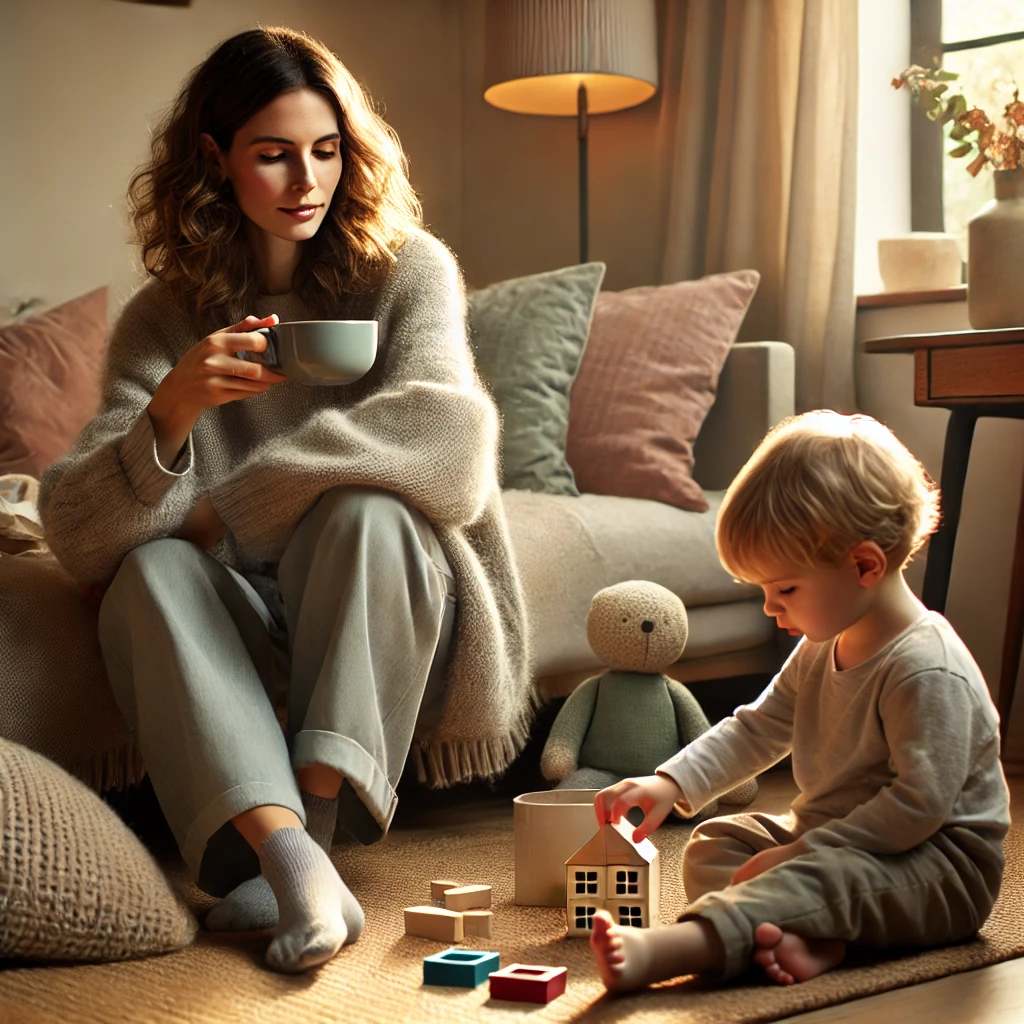Welcome to the invisible ripple effect of mum anxiety – how it seeps into the nooks of our daily lives and silently shapes the tiny humans we love most. But do not panic. This post is your calm in the storm.
How Mum Anxiety Shows Up Even When You Are Faking Calm
Let us be honest – mums are the queens of the silent panic. Smiling on the outside, catastrophising on the inside. But kids are intuitive little creatures. They sense the tension even when we think we have masked it.
Here is how anxiety manifests in mums, yes, even the high functioning kind:
- Snapping over socks on the floor, it is not about the socks
- Rechecking everything ten times
- Getting overwhelmed by the smallest things
- Difficulty sleeping, even when exhausted
- Constant guilt for not doing enough
The Ripple Effect: How It Affects Children
1. They Mirror Your Worry
Anxious energy is contagious. Kids of anxious parents are more likely to show:
- Excessive fear or clinginess
- Trouble concentrating
- Physical symptoms like tummy aches
- People pleasing tendencies
2. They Internalise Responsibility
Without context, children may think “Mummy is upset because of me.” That is a heavy emotional load for a child to carry.
3. It Impacts Emotional Development
Long term exposure to unregulated parental anxiety can lead to emotional dysregulation, low confidence, and difficulty navigating their own stress in later life.
Stop the Spiral: What You Can Do Today
1. Narrate Your Feelings, Age Appropriately
Try saying “Mummy feels a bit wobbly today. It is not your fault. I just need a little quiet to feel better.”
This teaches emotional literacy and releases kids from silent blame.
2. Create a Safe Signal
A word, object or emoji between you and your child that means “Mummy needs calm” – without needing to explain or scare them.
3. Use the Rule of 3
Overwhelmed? Ask yourself:
- Is it true?
- Is it helpful?
- Can I control it?
This stops anxiety from dragging you into unnecessary chaos.
4. Model Regulation, Not Perfection
Instead of pretending everything is fine, show them how to cope:
- Deep breaths
- Saying no without guilt
- Taking a walk
- Journaling or doodling
They will follow what you do, not just what you say.
Remember This, Mama
You are allowed to feel anxious. You are allowed to take up space with your emotions. And you are allowed to prioritise your mental health without apology.
In fact, you must. Because when you do, your kids do not just see a mum who keeps it all together. They see a woman who is brave enough to get help, make changes, and love herself out loud.
That is the real legacy.
FAQs
Can mum anxiety affect a child’s behaviour?
Yes. Children often mimic the emotional tone of their primary caregiver. Anxiety in mums can lead to behavioural issues like clinginess, tantrums or withdrawal.
Does my child know when I am anxious?
Most likely, yes. Even if they cannot articulate it, they sense tension, changes in tone, and body language shifts.
How can I protect my child from my anxiety?
You do not need to hide your feelings. Use clear, age appropriate language, model healthy coping strategies, and seek support when needed.
Is it too late if I have already been anxious for years?
Never. Children are resilient. With love, honesty and consistency, they can thrive even after rocky emotional chapters.
Spread the Word
If this post made you feel seen, share it. Pin it, send it to your WhatsApp mum group, or post it on Instagram with a “read this” caption. The ripple effect starts here.
And if you want more honest, hilarious, helpful content like this, subscribe to the Darling Mellow newsletter and join thousands of mums who are done pretending perfection.


